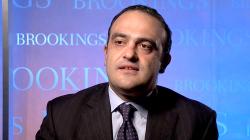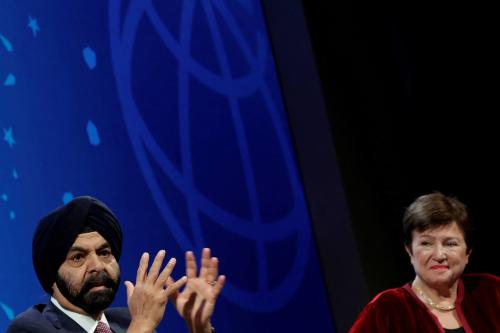Summary
There is almost universal agreement that the International Monetary Fund (IMF) is in need of reform. The IMF is in dire financial straits, which undermines its effectiveness in monitoring international financial stability, addressing key economic issues, and in providing technical expertise to finance ministries and central banks. Many countries are reluctant to work with the IMF, because they regard it as doctrinaire, responsive mainly to its largest shareholders, and a political liability. Yet, in a world of globalized financial markets, the IMF’s role and functions are more crucial than ever.
To restore the effectiveness and legitimacy of the Fund the IMF needs to reform its governance structure and operational approach. The debate over the specific content and methodology of any reform package, however, has been centered in Europe and North America – the IMF’s largest shareholders. By contrast the developing countries, holding over half the world’s GDP, people, and reserves, have had little voice and input to the process. Consequently, New Rules for Global Finance Coalition, together with the Centre for International Governance Innovation (CIGI), and Oxford University’s Global Economic Governance Programme, launched an initiative to provide countries throughout the developing world with opportunities to present their priorities for reforms of the IMF.
The initiative, entitled Bringing Balance to the IMF Reform Debate, began with a series of regional meetings held March-May 2008 in Africa, Central Asia, East Asia, Latin America, and the Middle East, that brought together finance ministers, central bankers, and senior advisors from their regions. The policy-makers elaborated their priorities for a reformed IMF in terms of its roles, core functions, representation and accountability. In July 2008, regional representatives then met with senior economists who specialize in global financial systems at a culminating event in Waterloo, Canada to discuss their views and recommendations.
This extensive consultative process yielded a set of recommendations that call for the IMF to reform its policy requirements, surveillance reports, representation and accountability.
This report presents these recommendations voiced by the participants at the regional meetings, which emanated from their discussions regarding four major issues areas (functional, regional, representation, and accountability) of the IMF reform debate.


